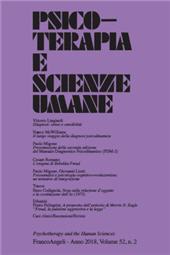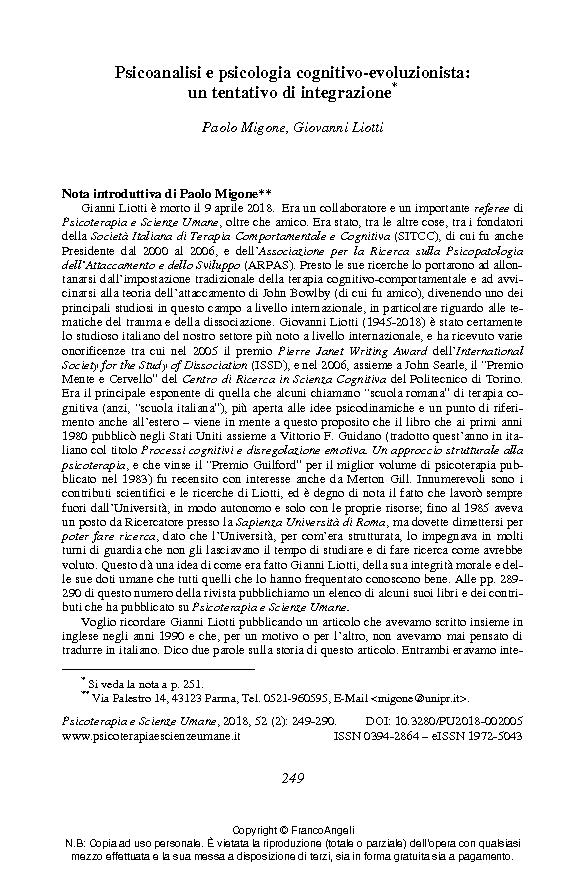Nota introduttiva di Paolo Migone : psicoanalisi e psicologia cognitivo-evoluzionista : un tentativo di integrazione
249-290 p.
Si può dire che l'abbandono della teoria del trauma da parte di Freud nel 1897 sia stato esso stesso un trauma, che lo portò a reagire dando importanza al ruolo delle pulsioni. In un certo senso, nella psicoanalisi vi è stato un secondo trauma, che potremmo chiamare "abbandono della teoria delle pulsioni": gli esseri umani mirano non tanto a scaricare pulsioni quanto a ricercare rapporti interpersonali, dare significati e assimilare nuovi schemi. La sfida oggi è quella di operare una revisione della teoria psicoanalitica della motivazione utilizzando i dati che provengono dalla scienza cognitiva, l'etologia, l'infant research e la ricerca in psicoterapia.
Tra i vari modelli oggi presenti in psicoanalisi, viene discussa la Control-Mastery Theory formulata da Weiss e Sampson alla luce della epistemologia cognitivo-evoluzionista, e precisamente utilizzando il classico libro del 1960 Piani e struttura del comportamento di Miller, Galanter & Pribram, la teoria neurobiologica di Edelman e la teoria dell'attaccamento di Bowlby. [Testo dell'editore].
The abandonment of the theory of trauma in 1897 was a trauma for Freud himself, who was led to "despair", and possibly reacted with an overemphasis on inner fantasies and drive theory. In a way, today we are facing a second trauma in the history of psychoanalysis: we might call it the "abandonment of drive theory", i.e., human beings strive not primarily to reduce drives but rather in order to seek objects, assign meanings, and assimilate new schemas. The current challenge is a revision of the psychoanalytic theory of motivation based on converging evidence from cognitive science, ethology, infant research, and psychotherapy research.
Among the many models currently suggested in contemporary psychoanalysis, Weiss & Sampson's "Control-Mastery Theory" is discussed in light of cognitive science and evolutionary epistemology: namely, within the frame of the 1960 classic by Miller, Galanter & Pribram Plans and Structure of Behavior, Edelman's neurobiological theory, and Bowlby's attachment theory. [Publishers' text].
Ist Teil von
Psicoterapia e scienze umane : LII, 2, 2018-
Artikel aus derselben Ausgabe (einzeln erhältlich)
-
Informationen
ISSN: 1972-5043
THEMENBEREICHE
KEYWORDS
- Control-Mastery Theory, Integrazione in psicoterapia, Teoria psicoanalitica, Psicologia cognitivo-evoluzionista, Gerald Edelman
- Control-Mastery Theory, Psychotherapy integration, Psychoanalytic theory, Cognitive-evolutionary psychology, Gerald Edelman



